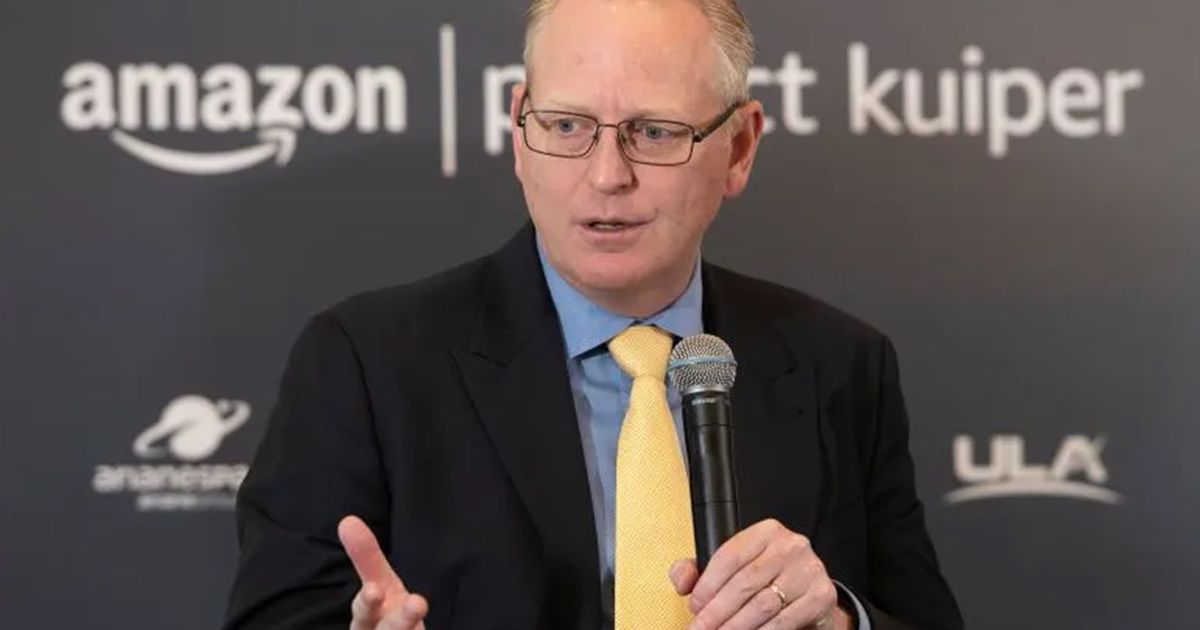
Amazon’s devices chief said the company remains committed to building out the Alexa ecosystem despite job cuts in the once fast-growing division.
When Amazon last month initiated its biggest-ever round of layoffs, they fell first and hardest on the Devices and Services group. The unit is responsible for the Alexa voice-activated assistant, Echo smart speakers, Fire streaming devices and home robots.
In an interview Tuesday, Senior Vice President Dave Limp called the cuts “a painful event and not one you ever want to do.”
Still, he said: “Is there some lack of commitment to Amazon’s devices and services business? By any measure, the answer is no.” He cited continued big bets on Alexa, Zoox self-driving taxis and Kuiper internet satellites as evidence that Chief Executive Officer Andy Jassy is willing to invest billions on projects that might not pay off for years.
“I’ve yet to be in a meeting where he doesn’t call out those as big inventions and big bets,” Limp said. “But at the same time, he also is inspecting them and spending time with them.”
Bloomberg and other news outlets reported that Amazon’s layoffs could total 10,000 employees companywide, though teams were still finalizing their plans.
Job cuts in Limp’s division affected “well under 2,000 people,” he said, spread about evenly between groups working on the Alexa voice assistant and other teams. The group still employs “tens of thousands” of people, Limp said, with about 10,000 working specifically on Alexa-related projects — or about the same number as in 2018. Amazon also wound down teams working on Alexa-related telehealth services, original games and some unreleased projects.
Alexa-powered Echo speakers were among the hottest consumer technology products when they debuted in 2014. People used the voice-activated devices to play music, find answers to trivia and other tasks. Amazon expanded the Alexa team rapidly in an effort to fulfill founder Jeff Bezos’s desire to re-create the Star Trek talking computer — and get there faster than Alphabet, parent of Google, and Apple.
But users have long expressed disappointment in what they see as the technology’s limitations. Many wound up using the speakers as a timer or weather announcer. Some stopped using them altogether. Inside Amazon, executives fretted that user engagement falls after the novelty wears off, Bloomberg reported last year.
Limp insisted that engagement with Alexa has been growing and that the number of people using the software is at an all-time high. But he conceded that the devices group is still not profitable, though he disputed published reports that operating losses in recent years had totaled as much as $5 billion. (Limp declined to provide a precise figure.)
The devices themselves are often sold at or near cost. Becoming profitable will require persuading customers who use the hardware to pay for such services as online shopping, music or audiobooks, Limp said.
“I think the momentum of monetization of Alexa is on the right track,” he said.


More Stories
Save Earth Mission’s Takeoff Event Countdown Starts: Get Ready to Witness History
The Save Earth Mission: A Global Movement Towards a Sustainable Future
Leading Utility Token YES WORLD adds gaming project to Utility ecosystem, supports third party game publishers on its platform